Research
Re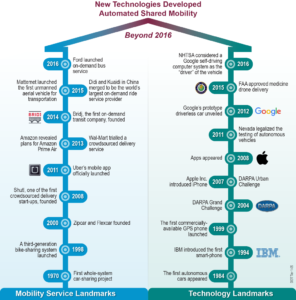 cent advancements in information and vehicular technologies drive the wave of innovations in mobility services and systems. The figure on the right presents the timeline of key technology developments and the emergence of new mobility services, and shows how the latter follows the former. Specifically, the number of smart mobile devices in the US has been rising steadily. These devices retrieve users’ geolocations, enable ubiquitous communications, and allow instant peer-to-peer interaction, giving rise to various on-demand mobility services for goods and people, which bring together suppliers of resources (e.g., car and parking space) and services (e.g., ride and parking) with very low transaction costs. Connected and automated vehicle technology will further revolutionize urban and rural mobility and promote the shift from car ownership to sharing/subscription. Automated shared-use mobility services may eventually emerge where companies own a fleet of different types of automated vehicles and offer on-demand ride hailing services. Other types of mobility services will be likely catalyzed by new business models and venture capital investments.
cent advancements in information and vehicular technologies drive the wave of innovations in mobility services and systems. The figure on the right presents the timeline of key technology developments and the emergence of new mobility services, and shows how the latter follows the former. Specifically, the number of smart mobile devices in the US has been rising steadily. These devices retrieve users’ geolocations, enable ubiquitous communications, and allow instant peer-to-peer interaction, giving rise to various on-demand mobility services for goods and people, which bring together suppliers of resources (e.g., car and parking space) and services (e.g., ride and parking) with very low transaction costs. Connected and automated vehicle technology will further revolutionize urban and rural mobility and promote the shift from car ownership to sharing/subscription. Automated shared-use mobility services may eventually emerge where companies own a fleet of different types of automated vehicles and offer on-demand ride hailing services. Other types of mobility services will be likely catalyzed by new business models and venture capital investments.
These mobility services are expected to play an increasingly important role in meeting mobility needs. It is critical to understand the impacts and implications of these services and provide guidance on their development and deployment. LIMOS conducts quantitative analyses and develops novel models and tools to understand, plan, design, and regulate emerging mobility services to enable them to be integral components of transportation systems and improve system connections and integration. Below we highlight selected LIMOS research projects towards connected, automated, shared and electrified (CASE) mobility.
Advanced Parking Management for Traffic Congestion Mitigation
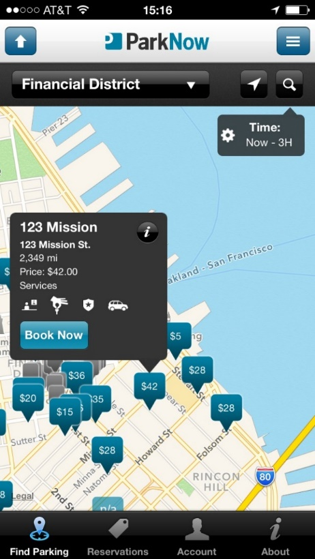 Parking is a growing problem in many dense urban districts. To many, finding a parking space in those areas is an unpleasant experience of uncertainty and frustration. Cruising for parking makes already-congested urban streets even worse and yields significant waste in time and fuel. The proliferation of advanced smartphones provides tremendous opportunity for efficient parking management. Smartphone-based parking management applications have emerged. These applications help drivers find parking spaces by allowing them to use smartphones to view real-time availability and prices of parking spaces and guiding them to open parking spaces, reserved or otherwise.
Parking is a growing problem in many dense urban districts. To many, finding a parking space in those areas is an unpleasant experience of uncertainty and frustration. Cruising for parking makes already-congested urban streets even worse and yields significant waste in time and fuel. The proliferation of advanced smartphones provides tremendous opportunity for efficient parking management. Smartphone-based parking management applications have emerged. These applications help drivers find parking spaces by allowing them to use smartphones to view real-time availability and prices of parking spaces and guiding them to open parking spaces, reserved or otherwise.
Funded by National Science Foundation, we conduct a comprehensive study on smartphone-based parking management. The research generates a set of analytical tools that not only explain the underlying working mechanism of advanced parking management services with much enhanced representation of traffic and behavioral realism, but also gauge their potentials for reducing traffic congestion. The analytical tools lay out a blueprint for optimizing their implementation and designs. The theoretical efforts are complemented by an agent-based simulation, which tests the validity and applicability of the theories, and unveils complex outcomes of parking competition under realistic parking search behaviors. The research advances the knowledge and analysis of parking management and enriches the literature of modeling morning commute, vehicle routing and game theory. Finally, the work sheds light on designing other applications enabled by advanced smartphone technologies for traffic management and control. [Learn more…]
Participatory Traffic Control
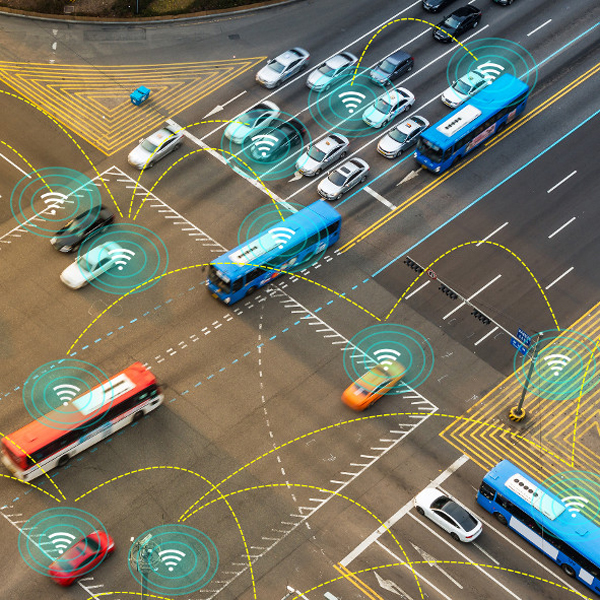
In many years to come, the traffic stream will be mixed with human-driven vehicles without connectivity (regular vehicles), human-driven vehicles with connectivity (connected vehicles), and vehicles with various levels of automation. We attempt to leverage connected vehicles in the traffic stream to better manage and operate our road networks. More specifically, we propose participatory traffic control, where a community of connected vehicles will be incentivized to opt in for traffic control and management. We envision that an online and mobile platform will target specific participating commuters and incentivize them to a) behave as “travel demand distributors” to better distribute the commuting demand across time periods and transportation facilities; and b) function as “traffic stream regulators” to regulate traffic stream to prevent or delay the activation of recurrent bottlenecks. Our working hypothesis is that, by incentivizing the behavioral changes of a small number of targeted participants, the platform can influence a larger number of untargeted commuters’ travel decisions to improve the overall system performance. The overarching goal of participatory traffic control is to migrate many functions of traditional, impersonal, physical controllers in the transportation system (e.g., message signs, speed limits) to the targeted behavior intervention in the cyber space.
Funded by ARPA‑E of the US Department of Energy, we have worked with researchers from University of Maryland to apply the above idea to reduce energy consumption in personal transportation. The project yielded IncenTrip (https://www.incentrip.org/Default.html), an app that aims to reduce energy use of vehicular travels by incentivizing individual travelers to adjust travel choices and driving behaviors. The primary contribution of LIMOS to IncenTrip was to develop its control optimizer that optimizes personalized award to encourage behavioral changes.
Image: safecarnews.com/australia-stablishes-connected-vehicle-network-c-its-by-2017
Adapting Land Use and Infrastructure for Automated Driving
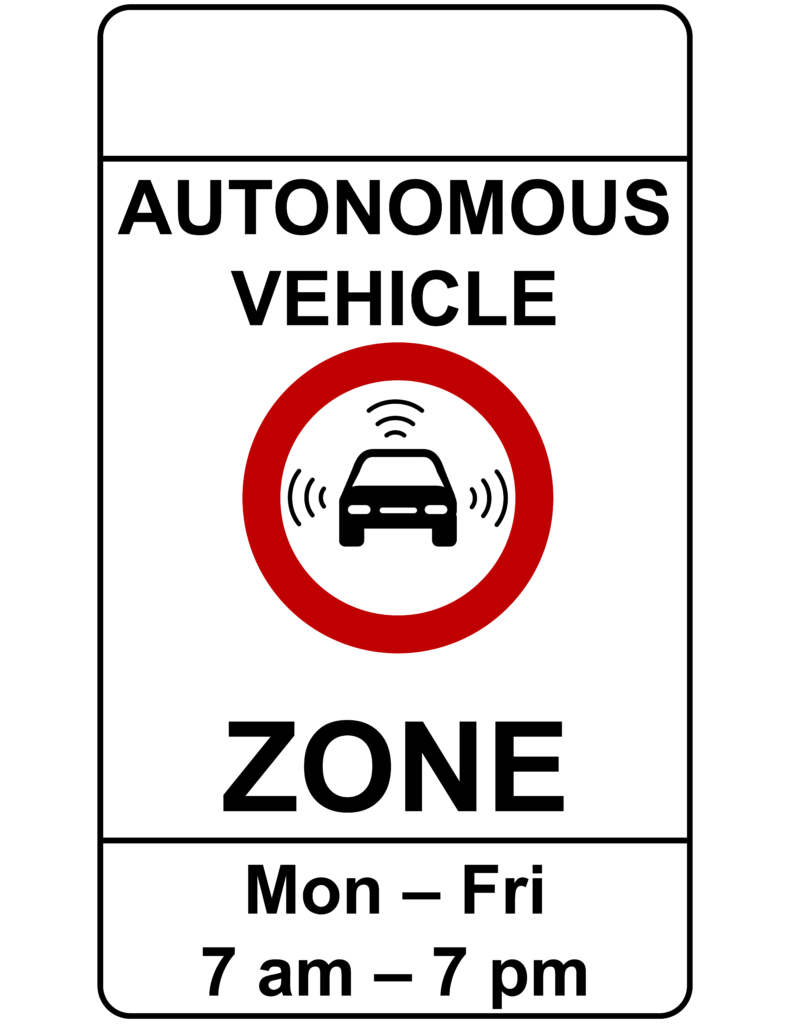
Automated vehicles (AVs) will likely yield a transformation of urban mobility systems, which will further impact the form of a city and its land use, and subsequently, the travel pattern of the city. Therefore, it is critical to investigate these impacts and implications, which will help planning and development agencies to form their policies, regulations and plans for urban land use to support automated mobility. It is also critical for planning agencies to modify transportation infrastructure to adapt to, and more importantly, promote the deployment of AVs. Before manual driving can be criminalized one day as some have predicted, the traffic stream on road networks will still be heterogeneous, with both conventional vehicles and AVs. We envision that planning agencies can initially identify critical locations to implement various AV mobility applications. For example, a “bottleneck manager” can be implemented at a recurrent freeway bottleneck. When approaching, AVs send requests via vehicle-to-infrastructure wireless communications to the “bottleneck manager”, which will prioritize the requests and optimize their trajectories to ensure timely passage while preventing the bottleneck from being activated. To leverage the growing adoption of AVs, planning agencies may later change the lane configuration of certain highway segments to dedicate some traffic lanes to AVs only to facilitate the formulation of vehicle platoons for higher throughput. Some lanes may be dedicated for passengers’ pick-up/drop-off. Parking spaces in business districts will be relocated to the periphery. The relocation of on-street parking may provide more lanes and increase roadway capacity in business districts. Moreover, the AV-only lanes can be further expanded to AV areas, and subsequently implemented are innovative control strategies that aim to achieve system optimum performance in those areas. The dedicated AV areas will further expand gradually as the level of market penetration of AVs increases, and eventually support fully connected and automated mobility in the whole system.
Various State Departments of Transportation and Metropolitan Planning Agencies around the nation have recognized the need for land use and infrastructure adaptation planning for AVs. There is a lack of systematic methodology to support such policy making and planning practice. We have established quantitative modeling frameworks to analyze the impacts of AVs on mobility systems and urban land use. These frameworks will provide a quantifiable understanding of the tradeoffs, and reveal the underlying mechanism and identify key parameters that could shape the future of mobility systems and urban land use. Moreover, the proposed modeling frameworks will aid planning agencies with infrastructure adaptation planning and optimize a roadmap for shaping highway infrastructure towards automated mobility.
Behavioral Stability of Cooperative Vehicle Platooning for Energy Saving
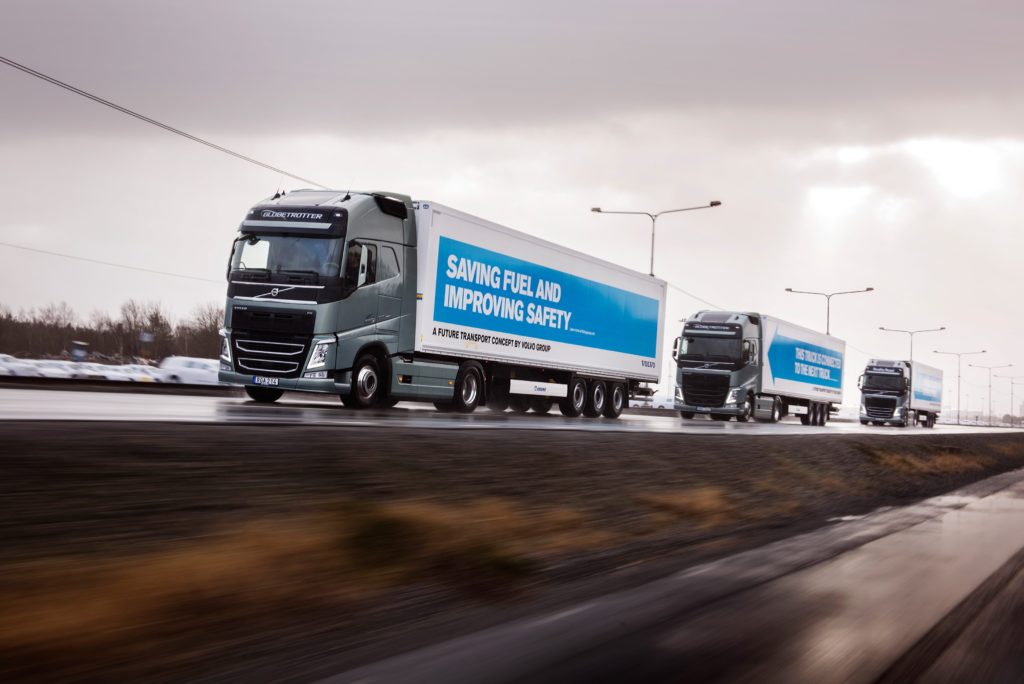
Cooperative vehicle platooning is a set of vehicles driving together with low headway enabled by the connected and automated vehicle technology. Vehicle platooning has been demonstrated to be a promising way to reduce fuel consumption and traffic emissions. Previous studies have primarily investigated optimal control of vehicle platoons to guarantee string stability and maintain the desired space. Few has considered the behavioral side of the problem, i.e., ensuring drivers or owners’ willingness to form and maintain the platoon, which is particularly critical for human-driven connected vehicles or privately-owned automated vehicles. Because vehicles in a platoon may benefit differently from platooning, e.g., the lead vehicle of the platoon may not save any energy at all, some drivers or owners will not be willing to join or stay in a platoon even if they are advised to do so. To address this issue, funded by National Science Foundation, we seek for economic mechanisms based on a fair redistribution of benefits to incentivize drivers or owners to form and more importantly, maintain both the stability of the “greenest” cooperative vehicle platoon formations. The research challenge to be addressed is to achieve, in a distributed or localized fashion, both the inter- and intra-platoon stability in a dynamic and uncertain environment.
Image: www.youtube.com/watch?v=lx9EFJ6qgZc
Modeling and Analysis of Ride-Sourcing Markets

Since their advent in 2009, on-demand ride-sourcing companies (also called as Transportation Network Companies) such as Uber and Lyft have enjoyed huge success, but have also created many controversies. The regular cab services are usually regulated in terms of price, entry and service quality while comparatively fewer regulatory requirements have been imposed for ride-sourcing companies. Unfair competition is argued particularly by cab drivers and their employers, who have organized strikes and filed lawsuits around the world. Government officials and legislators are wondering what to do with these ride-sourcing companies. Their success has casted doubts on the regulation of the taxi industry and challenged some of its fundamentals.
Funded by National Science Foundation, we develop methodologies and tools for analyzing the structure and competition of taxi markets with emerging ride-sourcing services and then deriving insights on their regulation. The research is conducted in two principal thrusts. The first aims to develop analytical methodologies to investigate optimal regulation regimes of taxi markets with ride-sourcing companies under simplified aggregate or macroscopic settings. The second develops an agent-based simulation tool and a simulated test bed to provide critical inputs to the theoretical investigations, verify the predications and insights drawn from the theoretical tools, and more importantly, experiment and investigate various regulations and policies in complex systems beyond the analytically tractable cases. This work offers the first comprehensive study of taxi systems with emerging ride-source services and provides theoretical underpinning for their regulation and management.
Image: infomax.com.au/latest-articles/ride-sourcing-is-taxi-travel
Understanding Labor Supply in the Ride-Sourcing Market
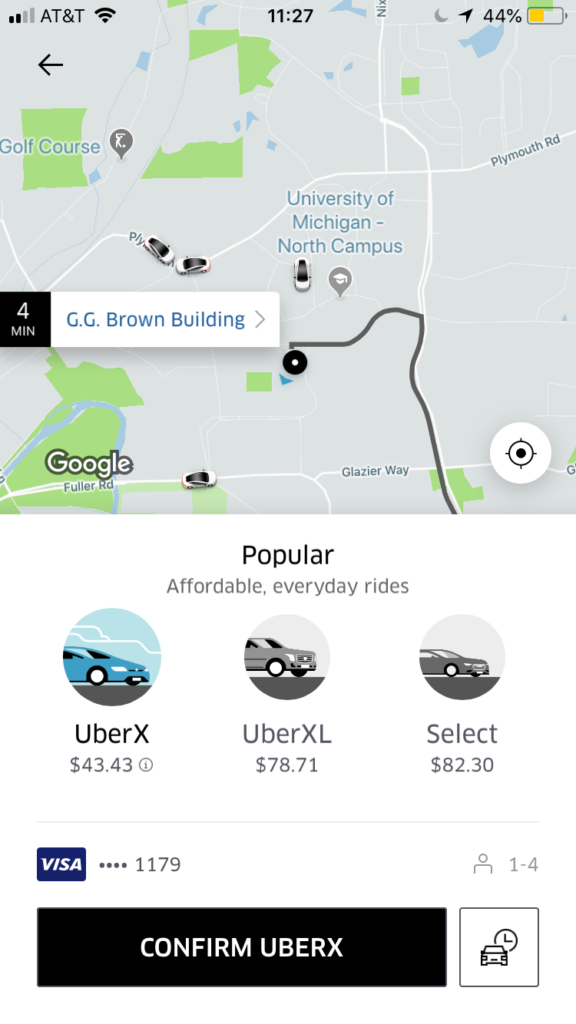 As a typical example of a two-sided market, ride-sourcing companies serve as intermediary platforms that efficiently match customers to affiliated drivers nearby. Unlike traditional firm-employee relationship, the ride-sourcing market is featured by flexible labor supply. Drivers are free to determine where, when and how long they want to work. Some of them may work full time like professional taxi drivers while others only provide service for very limited time. However, the flexibility enjoyed by ride-sourcing drivers poses challenges for ride-sourcing companies to manage the system. The companies may fail to attract sufficient labor supply despite being able to accurately predict days or areas with demand surges. Therefore, there is an increasing need to understand, estimate and maintain proper labor supply in the ride-sourcing market.
As a typical example of a two-sided market, ride-sourcing companies serve as intermediary platforms that efficiently match customers to affiliated drivers nearby. Unlike traditional firm-employee relationship, the ride-sourcing market is featured by flexible labor supply. Drivers are free to determine where, when and how long they want to work. Some of them may work full time like professional taxi drivers while others only provide service for very limited time. However, the flexibility enjoyed by ride-sourcing drivers poses challenges for ride-sourcing companies to manage the system. The companies may fail to attract sufficient labor supply despite being able to accurately predict days or areas with demand surges. Therefore, there is an increasing need to understand, estimate and maintain proper labor supply in the ride-sourcing market.
Funded by Didi Chuxing, we model drivers’ work scheduling and zonal choices respectively, and investigate how these decisions interact with the wage rates that drivers receive. Leveraging empirical data and evidences from Didi Chuxing, we then apply our models to design and evaluate mechanisms and strategies that aim to guide or incentivize drivers to make better decisions and improve the performance of the ride-sourcing market.
Integrated Operations of Road and Power Networks Coupled by Plug-in Electric Vehicles

Deployment of plug-in electric vehicles (PEVs) will lead to more frequent and profound interaction between transportation and power systems. The policies and measures implemented in the transportation system will change the spatial and temporal distributions of PEVs and thus the pattern of their energy requirement, thereby affecting the operations of the power system. On the other hand, the provision of the charging infrastructures and the associated charging prices will affect the travel patterns of PEVs and consequently the operations of the transportation system. The level of interaction of these two systems will largely depend on the market penetration of PEVs, advancement in charging technologies and, more importantly, innovative control strategies that leverage advanced charging technologies to foster the integration of these two systems.
LIMOS has developed models and solution methodologies for analyzing the interaction between travel patterns of PEVs and prices of electricity and roads, designing pricing policies of both the road and power networks coupled by PEVs, and developing deployment strategies of public charging infrastructure to maximize social welfare. Our research will enable PEVs to couple the transportation and power systems in ways that address critical issues in both. The research also advances our understanding of the complex relationships, dependencies and interdependencies that cross the boundaries of these two systems, and improves the state of the art in transportation and power engineering, particularly, the theory of pricing of electricity and roads.
Image: www.wired.com/story/even-more-evidence-that-electric-cars-could-save-the-planet
Evaluation of Charging-While-Driving Technology
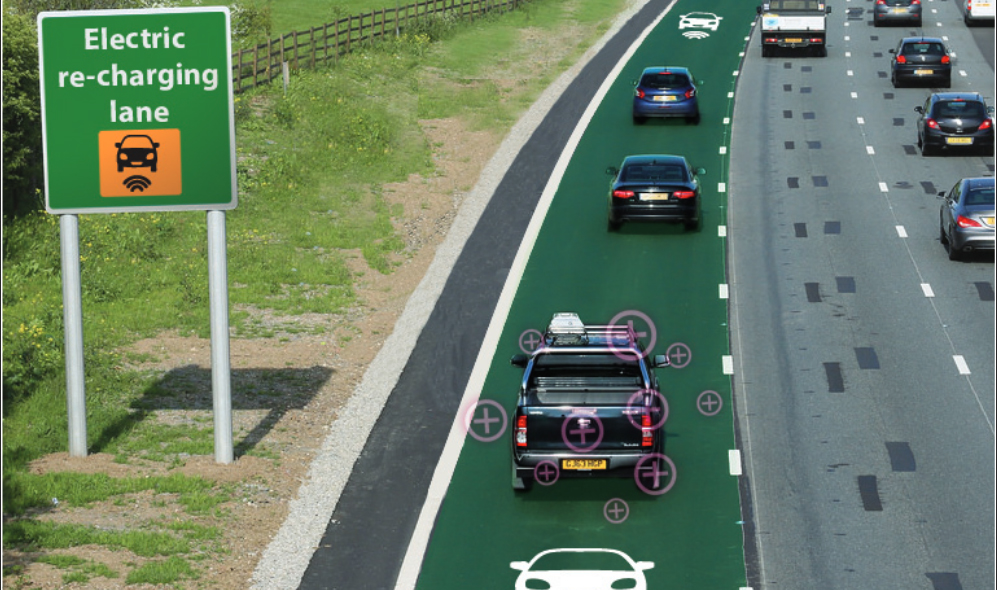
The deployment of public charging infrastructure plays a critical role in nurturing the electric vehicle (EV) market and promoting the adoption of EVs. Among various types of charging technologies, charging-while-driving holds great promise. It can be achieved by either conductive or inductive charging. The former is similar to the technology used for trams and trains, charging EVs via lines overhead or metal bars in the pavement. The latter, often referred to as dynamic wireless charging, transmits power without using any physical connector. The enabling mechanism includes, among others, inductive coupling, magnetic resonance coupling and microwaves. Given the charging-while-driving technology, roads can be electrified as charging infrastructure, and EVs can be recharged while they are moving on the charging lanes. Consequently, EV drivers may not fear any more running out of battery when they are on the move. Such a pervasive wireless charging platform can mitigate or even eliminate the “range anxiety” of EV drivers and further boost the adoption of EVs.
Anticipating that charging lanes can be technically ready for deployment in the foreseeable future, but may be costly to deploy, we established analytical models to investigate the economic feasibility of charging lanes in supporting private and public transportation. Furthermore, mathematical frameworks have been developed to optimize the deployment of charging lanes over transportation networks. Our research offers some guidance for the future development of charging-while-driving technologies, and provides a better understanding to decision makers on the economic viability and deployment plan of charging lanes.
Image: www.electric-vehiclenews.com/2015/08/uk-to-test-dynamic-wireless-charging.html
In addition, as the word cloud of LIMOS’ past publications 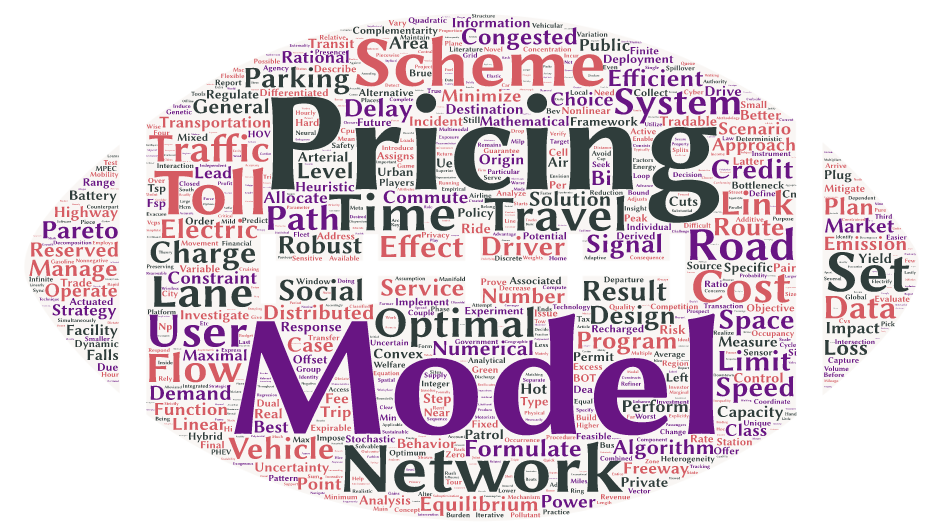 suggests, we have worked extensively in developing market-based instruments for congestion mitigation. Below is a summary of our work in this area.
suggests, we have worked extensively in developing market-based instruments for congestion mitigation. Below is a summary of our work in this area.
Innovative Market-based Instruments for Congestion Mitigation
Traffic congestion continues to threaten economic prosperity and quality of life around the world. It is widely acknowledged that market-based instruments are an indispensable ingredient in the recipe for solving the traffic congestion puzzle, and likely to be one of the more effective and cost-efficient if properly implemented. The market-based instruments can be generally classified into two classes, i.e., price-based and quantity-based. The former, widely known as congestion pricing, has been the focus in the transportation field for over 90 years. Funded by National Science Foundation, National Cooperative Highway Research Program and Florida Department of Transportation, with a proper blend of theory and practice, we have developed models and algorithms to make congestion pricing more pragmatic, flexible and publicly acceptable. Our contribution to the literature of congestion pricing includes Pareto-improving pricing to reduce traffic congestion without making anyone worse off; differentiated pricing of travelers with different origins, destinations, or paths; behaviorally-consistent pricing models that capture boundedly rational travel behaviors and a self-learning framework for dynamic pricing of managed or high-occupancy/tolls (HOT) lanes.
On the other hand, we have investigated the quantity-based approach, which seeks to directly regulate quantity, e.g., travel demand. Of particular interest is the so-called cap-and-trade or tradable credit scheme, which couples quantity restriction with a trading mechanism. Funded by National Science Foundation, our research has provided a better understanding of the working mechanism of the quantity-based approach to urban congestion management and created a theoretical framework to analyze and design new quantity-based schemes.